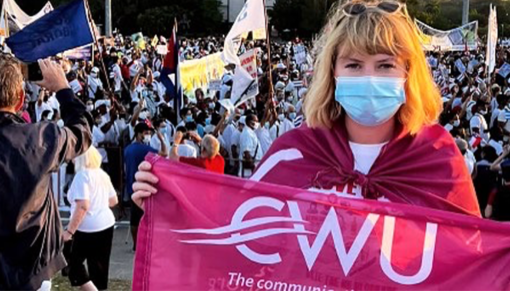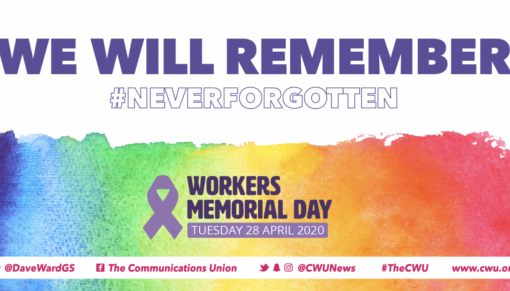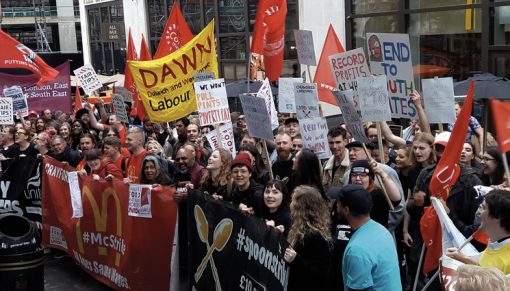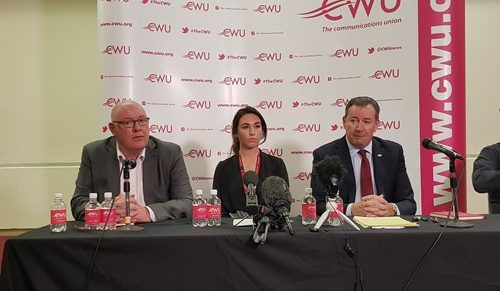That BIS report on the postal sector – what it says, what it means.
October 7 2015Today, the ninth report of the Business Innovation and Skills Select Committee (BIS SC) on Competition in the postal services sector & the Universal Service Obligation was published.
This is an important document and there will be much debate and analysis. But what does it say and what does it mean for us in the CWU? What is the possible impact on key issues of pay and job security for our 10,000 young members in the postal sector – This piece tries to give some answers.
The report says some good and valuable things. It raises concerns over threats to the universal service and the effect of competition on pay in the sector.
The parliamentarians have said OfCom needs to have a timeline to provide short notice assistance to the USO where it comes under threat – and it needs to be able to provide that help quickly.
So, says the Committee, there needs to be a costing of the USO on a regional basis.
Indeed, Ofcom’s duties may need to change to ensure it is protecting the universal service. The suggestion that the regulator outlines a timeline on the use of its existing powers to support the USO; and that it should provide quarterly updates to the committee in future would be part of that change.
This is important given the key role a properly functioning USO plays in providing a service for the country, maintaining a well structured Royal Mail and wider postal sector, and in providing stability in employment.
But it is on pay in the postal sector that the committee’s report is perhaps most eye-grabbing.
The BIS select committee explicitly comes out against what they themselves call a race to the bottom’ on postal workers’ pay and conditions.
Specifically, “the Committee also calls on OfCom to help combat any race to the bottom’ of postal workers’ wages, terms and conditions. The Committee recommends OfCom investigates the impact on and the service provided to customers, by any downward pressure on wages, terms and conditions of postal sector employees.”
And “to help guard against any downward pressure on the wages and conditions of postal staff”, they “recommend that the Government considers extending Ofcom’s remit to include consideration of labour costs, conditions and standards in the postal market.”
So what do we make of all this?
We welcome the committee’s recognition of a threat to the universal service, although we believe it is more urgent than the committee concludes.
CWU also shares the committee’s concerns that OfCom may not be able to act fast enough to protect the USO and we welcome suggestions to improve this. If the government is serious about protecting postal services then positive action must be taken.
CWU supports the recognition that OfCom’s duties may need to change to ensure it is protecting the universal service; the suggestion that the regulator outlines a timeline on the use of its existing powers to support the USO; and that it should provide quarterly updates to the committee in future.
But we have some reservation about costing the universal service because of the complexity of the mail network – something which becomes even more complicated for regional breakdowns given the changes in mail patterns and deciding how much each part of a letter’s journey across the country costs.
We are pleased to see the BIS select committee explicitly come out against a race to the bottom’ on postal workers’ pay and conditions.
However, we do not share the committee’s view that competition is not at fault for lower wages. Pay is at levels well below the Living Wage in new-entrant companies such as Whistl. Zero hour contracts are too common-place, and represent a threat to employment conditions elsewhere.
That is why the union is calling for the Living Wage to be the minimum wage across the postal sector.
There are some key debating points on these issues. In particular:
- It is now important that both government and the regulator take up the recommendations of the committee’s thorough report and take positive steps to protect postal services and those whose livelihoods depend on them.
- CWU shares the committee’s concerns that OfCom may not be able to act fast enough to protect the USO and we welcome suggestions to improve this. If the government is serious about protecting postal services then positive action must be taken.
- ‘Efficiency’ has become a euphemism for low pay and so we support the ?recommendation that Ofcom’s remit be extended to include employment standards to prevent a race to the bottom. But the regulator’s current policy on employment would have to change as we view it as hostile. We are calling for the Living Wage to be the minimum pay rate across the postal sector.

























































